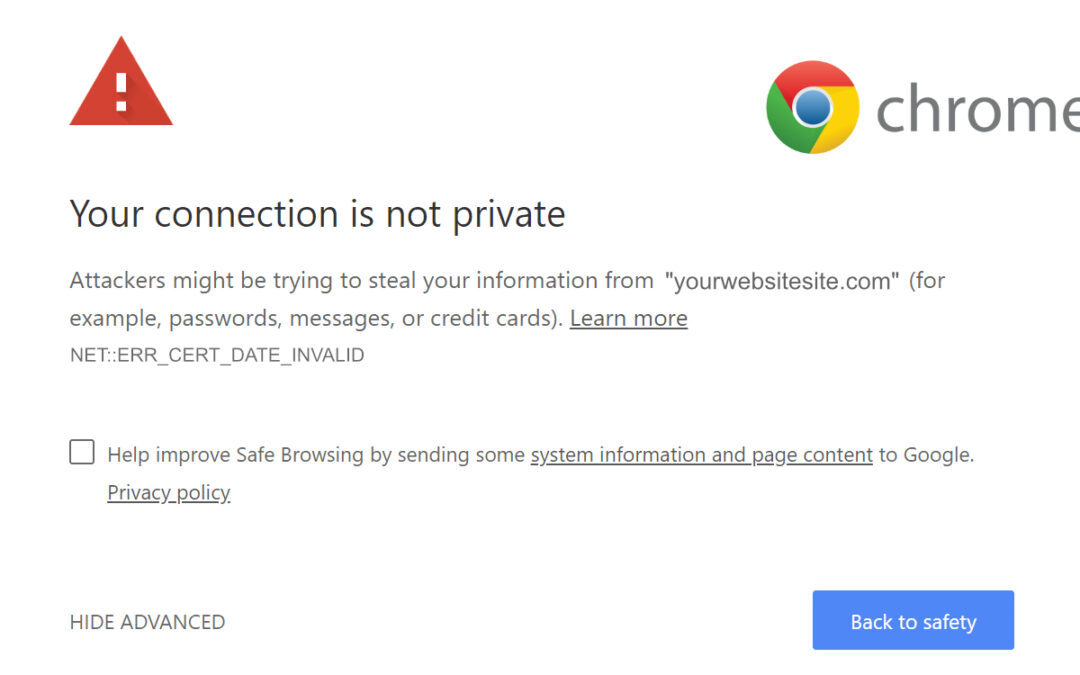
Our Approach to SSL Certificates For All Our Client Websites
As the internet continues to evolve, website security has become a crucial aspect of ensuring a safe and trustworthy online experience. One of the most significant developments in this regard is the use of Secure Sockets Layer (SSL) Certificates. In this article, we’ll explore the reasons why it’s essential for websites to have an SSL certificate and why Google requires it.
What does it mean?
First, let’s define an SSL certificate. SSL is a standard security protocol that establishes an encrypted link between a web server and a browser. This link ensures that all data transferred between the server and the browser remains private and secure. SSL certificates are digital certificates that are issued by trusted third-party providers, known as Certificate Authorities (CAs). These certificates verify the authenticity of a website and encrypt all data transmitted between the website and the user’s browser.
Now, let’s get into why SSL certificates are crucial for websites
- Data Protection One of the most significant benefits of SSL certificates is data protection. Without SSL, all data transferred between a user’s browser and a website is transmitted in plain text. This means that anyone who intercepts the data can read and use it for malicious purposes. SSL encrypts all data, making it unreadable to anyone who intercepts it.
- Authentication SSL certificates also provide authentication. They verify the identity of the website, ensuring that users are communicating with the website they intended to. This helps prevent phishing scams, where attackers create fake websites to steal user information.
- Improved SEO In 2014, Google announced that HTTPS (the secure version of HTTP, which uses SSL) would be a ranking signal in its search algorithm. Websites with SSL certificates are given a higher ranking than those without. This means that having an SSL certificate can improve a website’s visibility on search engines, which can lead to increased traffic.
- Trust SSL certificates also create trust between websites and their users. Seeing the padlock icon in the browser bar and the “https” in the URL reassures users that their data is secure and that they can trust the website they’re visiting.
So let’s talk about why Google requires SSL certificates. In 2018, Google started marking all HTTP sites as “Not Secure” in the Chrome browser. This was part of Google’s plan to make the web a more secure place. Google wants to encourage all website owners to adopt HTTPS by making it a standard for all websites.
Google has also stated that websites without SSL certificates may be penalized in search rankings. As we mentioned earlier, SSL certificates are a ranking signal in Google’s algorithm. Websites without SSL certificates are seen as less trustworthy, and their rankings may be lowered as a result.
Our agency, Design Theory, has been informing our clients about a campaign we’re performing to have all of our client websites configured with an SSL Certificate. Great news if you’re already a client of ours, and if you’re not but want to get your SSL Certificate installed on your website, give us a call or email and we’d be happy to help you!
To wrap things up, SSL certificates are crucial for website security, data protection, authentication, SEO, and trust. Google requires SSL certificates to make the web a safer place and to encourage website owners to adopt HTTPS. If you’re a website owner, it’s essential to obtain an SSL certificate to ensure your website’s security and to maintain your search rankings.








